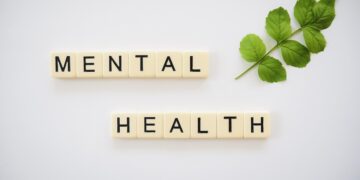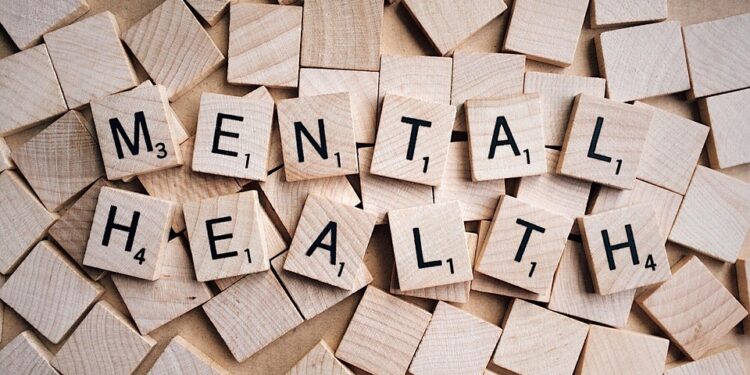Breaking the Stigma: A Comprehensive Guide to Mental Health Wellness
Mental health wellness is an important aspect of overall well-being, yet it is often stigmatized and overlooked. In recent years, there has been a growing awareness and acknowledgment of the importance of mental health, but there is still much work to be done in breaking down the barriers and misconceptions that surround it. This comprehensive guide aims to provide valuable information and resources for those seeking to improve their mental health and well-being.
What is Mental Health Wellness?
Mental health wellness refers to the state of our emotional, psychological, and social well-being. It encompasses how we think, feel, and act, and influences how we handle stress, relate to others, and make choices. Mental health wellness is important for overall health and quality of life, and it is essential for coping with the challenges and stressors of daily life.
Common Mental Health Conditions
There are many different types of mental health conditions that can affect individuals of all ages and backgrounds. Some common mental health conditions include:
- Anxiety disorders
- Depression
- Bipolar disorder
- Schizophrenia
- Post-traumatic stress disorder (PTSD)
- Obsessive-compulsive disorder (OCD)
It is important to note that mental health conditions are not a sign of weakness or personal failure. They are medical conditions that can be effectively treated with the right support and resources.
Breaking Down the Stigma
Despite the prevalence of mental health conditions, there is still a stigma attached to seeking help and talking openly about mental health. This stigma can prevent individuals from seeking the support they need and can lead to feelings of shame, isolation, and judgment. Breaking down the stigma surrounding mental health is essential for promoting well-being and encouraging individuals to seek help when they need it.
How to Break the Stigma
There are several ways to break the stigma surrounding mental health:
- Educate yourself and others about mental health
- Speak openly and honestly about your own mental health experiences
- Support and encourage others who are struggling with their mental health
- Challenge negative stereotypes and misconceptions about mental health
- Advocate for mental health awareness and resources in your community
By taking these steps, we can create a more supportive and understanding environment for those struggling with mental health conditions.
Self-Care and Mental Health
Self-care is an important aspect of mental health wellness. It involves taking care of your physical, emotional, and mental well-being and prioritizing activities that promote relaxation, stress relief, and overall well-being. Self-care can help reduce symptoms of mental health conditions, improve mood, and increase resilience to stressors.
Self-Care Tips for Mental Health Wellness
Here are some self-care tips to promote mental health wellness:
- Get regular exercise
- Eat a balanced diet
- Practice mindfulness and meditation
- Get enough sleep
- Engage in hobbies and activities you enjoy
- Spend time with loved ones
Remember that self-care looks different for everyone, so it’s important to find activities that work best for you and fit into your lifestyle.
Seeking Professional Help
If you are struggling with your mental health, it is important to seek help from a mental health professional. Therapy, counseling, and medication can be effective treatments for mental health conditions and can help you develop coping strategies and tools to manage your symptoms.
How to Find a Mental Health Professional
There are several ways to find a mental health professional:
- Ask your primary care physician for a referral
- Reach out to your insurance provider for a list of covered providers
- Search online directories for mental health professionals in your area
- Ask friends and family for recommendations
It’s important to find a mental health professional who you feel comfortable with and who has experience treating your specific mental health condition.
Resources for Mental Health Wellness
There are many resources available for individuals seeking to improve their mental health and well-being. Here are some resources to consider:
- National Alliance on Mental Illness (NAMI) – Provides education, support, and advocacy for individuals and families affected by mental health conditions
- Substance Abuse and Mental Health Services Administration (SAMHSA) – Offers information, treatment referrals, and support for individuals struggling with mental health and substance use disorders
- Crisis Text Line – A free, 24/7 text-based support line for individuals in crisis
- Therapy apps – Apps like Talkspace and BetterHelp offer online therapy and counseling services for individuals who prefer virtual support
Remember that it’s okay to ask for help and that there are many resources available to support you on your mental health journey.
Conclusion
Breaking the stigma surrounding mental health is essential for promoting well-being and encouraging individuals to seek help when they need it. By educating ourselves and others, speaking openly about our experiences, and advocating for mental health awareness, we can create a more supportive and understanding environment for those struggling with mental health conditions. Remember that self-care is important for mental health wellness, and seeking help from a mental health professional can provide effective treatment and support. There are many resources available to support you on your mental health journey, so don’t hesitate to reach out for help when you need it.
Remember, mental health wellness is a journey, and it’s okay to seek help and support along the way. You are not alone, and there are resources and people who care about you and want to help you thrive.
Take care of yourself, prioritize your mental health, and remember that you deserve to live a happy and fulfilling life.






































































